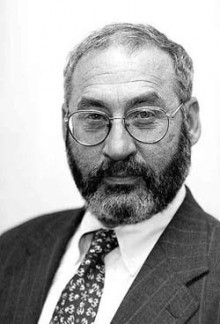The United Nations’ sixtieth anniversary summit in September reflected its strengths and importance in the many areas in which the international community must work together. Unfortunately, the summit also exposed the UN’s weaknesses and limitations.
Founded at the end of World War II to prevent another major disaster of that kind, the UN has now vastly expanded its mandate beyond peacekeeping, as important as that is. For instance, the Millennium Development Goals (MDG), adopted at the UN Millennium summit five years ago, proclaimed the international community’s resolve to reduce poverty in all of its manifestations and set concrete goals to be achieved by 2015.
Reaching political consensus on such complex issues is never easy, given the diversity of interests that must be addressed. Success requires diplomacy and patience, and the UN’s latest summit continued the march forward in the creation of a community of nations responsible for the well — being of all.
To be sure, the attempt by America’s new UN ambassador, John Bolton, to introduce hundreds of last-minute changes to the summit’s concluding declaration doomed the agreement — perhaps deliberately — to being less comprehensive and forceful than had been hoped. Indeed, Bolton even wanted to eliminate any reference to the MDG.
Nevertheless, even the United States had to give way in the end to this moral imperative. The summit’s declaration also enunciated, in refined diplomatic language, new rights and obligations concerning international intervention in a country’s internal matters, as in Darfur. We are, it seems, at last becoming a world in which each of us is our brother’s keeper.
Some have suggested that the Iraq war proved the UN’s irrelevance. On the contrary, I believe that the Iraq debacle underscores the value of the UN, and the need to strengthen it further. Let’s not forget that, within the limits of its powers, the UN worked. It was asked to judge whether there was an imminent threat to world peace requiring pre-emptive military action. After reviewing the evidence, it concluded that the case for going to war had not been made, while the risk of turmoil — about which most experts in the region warned — almost certainly weighed on the deliberations.
Since then, evidence has mounted not only that there were no weapons of mass destruction, but that the American and British governments provided deceptive, distorted, and misleading information. Similarly, the evidence is overwhelming that there was little if any link between Iraq and Al-Qaeda — at least before the war.
In other words, deliberative democracy — perhaps our most important safeguard against headstrong and reckless action — worked at the UN, but not in the US. Unfortunately, the UN could not prevent the US and other countries from taking actions that almost surely contravene international law.
The story since then is well known. When weapons of mass destruction were not found, the US and its small (and dwindling) “coalition of the willing” conjured up a new rationale — the struggle for democracy. But if that were the objective, clearly a long list of countries should have been drawn up, and it is hardly certain that Iraq would have come out on top. Replacing repressive dictatorships would, in fact, represent a vast expansion of the UN’s mandate, one that I suspect the US would not support.
More to the point, it did not bode well for a supposedly democratizing project to reject democratic processes at the UN. The US had made it clear that it would abide by only one outcome at the UN — a principle under which no democratic body can operate, for to insist that a decision must accord with the wishes of one member is dictatorship. Subsequent events have shown how difficult it is — even for the strongest country in the world — to impose a stable democratic regime.
Iraq thus showed both the strength and the limitations of the UN. Inevitably, its major source of strength is moral suasion. Even most Americans were reluctant to enter Iraq without the UN’s blessing. The democratic deliberative process worked, and it yielded the right answer. This should enhance confidence in the UN.
But the UN needs to be strengthened, by, for example, funding a permanent peacekeeping force. Too often, UN peacekeeping missions require passing the hat among the advanced industrial countries, giving them virtual veto power over when, where, and how the UN acts.
At the same time, a strengthened economic and social security council would enable the UN to shape more effectively debates about reforming the global economic and financial system. Today, by contrast, such debates are too often centered at the IMF, where the financial interests of the advanced industrial countries predominate.
These reforms will eventually come. Globalization has meant closer international integration, and that in turn has meant a greater need for collective action. The UN is the international institution created for that purpose, and as the world changes, the UN must change with it. But meaningful reform will almost surely have to await an American administration that is committed to global democracy in deed as well as rhetoric.
www.project-syndicate.org
Joseph E. Stiglitz, a Nobel laureate in economics, is Professor of Economics at Columbia University and was Chairman of the Council of Economic Advisers to President Clinton and Chief Economist and Senior Vice President at the World Bank. His most recent book is The Roaring Nineties: A New History of the World’s Most Prosperous Decade.







